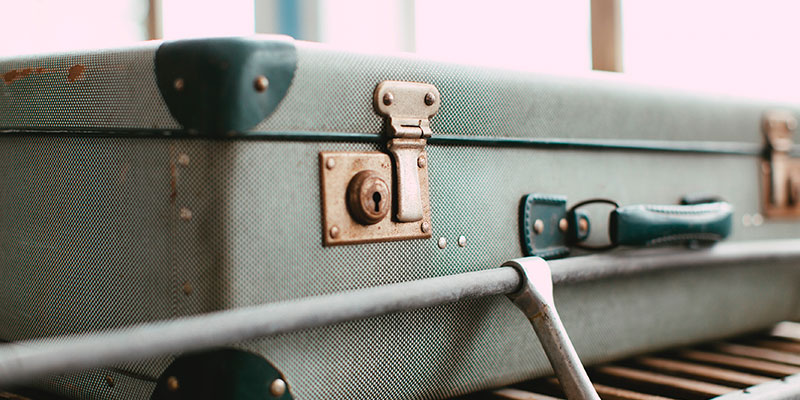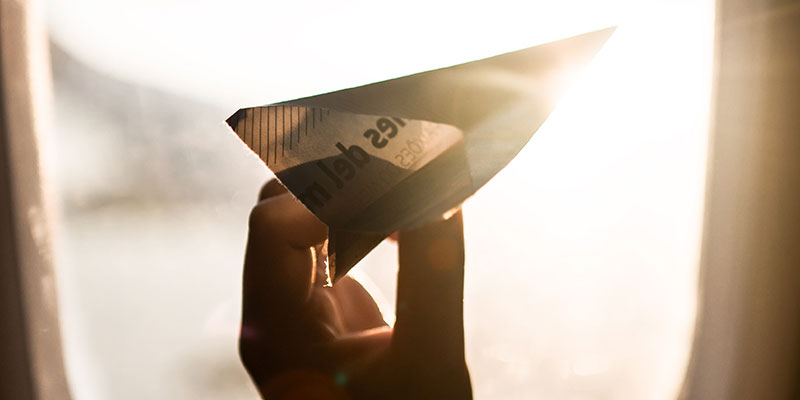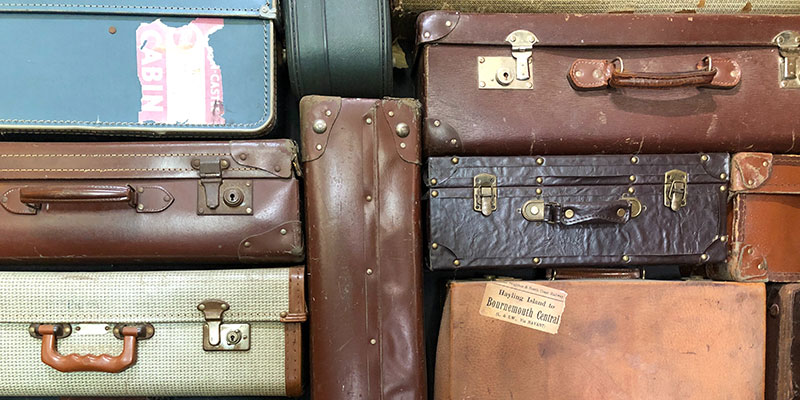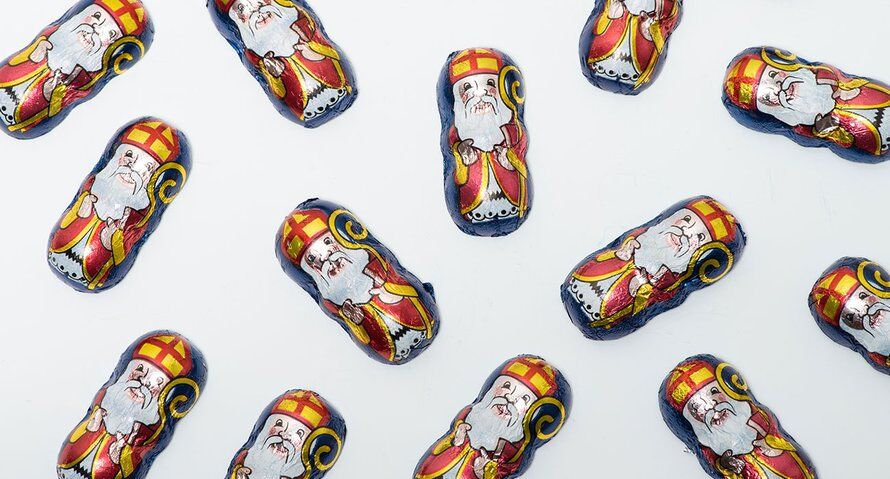‘We almost never go back to the Netherlands’
Image: Getty Images / Unsplash
No sandwiches with chocolate sprinkles or cycling to school: thanks to parents who had to live abroad if necessary, your childhood suddenly looks very different.
Linda Peelen (44), has been living in Sweden with her husband Martijn (47) and their sons Moos (10) and Joas (3) since May 2021. From there she coaches Dutch children and their parents, mostly online.
“One Sunday morning I said to Martijn: ‘We have to go to Sweden’. I cannot describe exactly what happened, but I felt that we had to leave the Netherlands. That surprised me too, because we were well organized in our beautifully renovated Frisian farmhouse, my child therapy practice was going well, just like Martijn’s B&Bs. He went for a walk to let this sink in. When he returned, he said that he had seen an eagle. It stands for: spread your wings, go on an adventure.
Contents
On adventure
Long story short: we set out to find out what you need to arrange when you emigrate. When Moos discovered this in our online search history, he filled up. Logically, he didn’t want to leave his friends. We made a mind map with him on which he wrote everything he would like to do in Sweden. From that moment on he lay next to his bed and then it was good for him too.
“I suddenly felt that we had to go to Sweden”
Within three months our house was sold and we could say goodbye. I counted on a critical note from my father, but he said, “If I were your age, I’d go too.” On May 5, 2021 we left with our camper, we went on spec to Sweden to quietly look for our new place. After five weeks of traveling we found a house in the middle of Sweden, a ten minute drive from a village. The boys enjoy going to kindergarten and school. Brave, because we haven’t had time to learn Swedish yet.
Life here is as I imagined it. I really enjoy the colorful forests and deep blue lakes. There are regular foxes and moose in the garden. Recently Martijn and I were in the car together, we saw an eagle flying through the glass roof. For us it is confirmation that it is good that we have embarked on this adventure.”

Ambitious plans
Yvette Seinen (36) lives with her husband Willem (37) and their daughters Athalia (9), Ermelinde (7), Moriela (4) and Wianne (1.5) in Fortaleza, a coastal city in the northeast of Brazil. From their Triomfator foundation they work with children who live in the slums.
“All my life I knew that I would be working here with street children. My calling was sparked by a visit from a missionary couple who came to primary school to tell about children in Brazil who sleep on the streets because they have no roof over their heads. Those stories made such an impression on me that I always insisted that one day I would go. Even when adults were a bit giggly about my ambitious plans.
After my studies in social pedagogical work I met Willem. On our first date, he said his heart broke when he saw children roaming the streets at night while traveling through Brazil. I immediately jumped on that, of course. I was 24, a year later we were married and five years later we left for Brazil. In the meantime our oldest two daughters were born. We have lived in different places to gain experience at other foundations. Two years ago we moved to Fortaleza.
Also read: Start a family? This is best done in these countries (and this is why) >
Two worlds
We actually live in two worlds here. At home, with our four daughters it is safe. But they cannot play outside the garden and the gate must always be locked, the danger of kidnapping for the sex industry is too great. When we walk down the street with them, everyone wants to touch and smell their blond hair. They don’t like that very much, but the kindness and affection of the Brazilians is beautiful. Our girls go to a private school and what they don’t learn there, I teach them at home myself.
“The children are not allowed to play in the street, then they can be kidnapped”
The contrast with the slums is immense. I recently visited a grandmother who lives in two rooms with her seven grandchildren. Her daughter is a prostitute, barely at home and constantly pregnant. Heartbreaking to watch. The children in the slums have no sense of time and distance, because of the lousy education. Many dealers try to recruit the young children there for the drug trade. We do our best to break through patterns and organize kids’ clubs, where we tell about God’s love for them. In addition to entertainment and fun, we also teach the children practical matters: brushing teeth, washing hands, staying healthy. Our desire is a field of our own where we build a school and teach children to become self-reliant.
We hardly ever go back to the Netherlands, we mainly see family online. Willem misses Dutch cheese, I miss the Dutch seasons and just a walk from your house. I never wonder if we would do well to live here, I just know.”

So many different countries
Julia Schipper (38) lives with Jurr ten Hove (39) and their son Olle (3.5) in Bangkok, Thailand. She works there as the head of office of Right to Play, an international organization that uses play to support children growing up in challenging circumstances.
“Olle has fried rice for lunch, he doesn’t need a cheese sandwich. This is how it works if you are born in Thailand, even if we are Dutch. Our life is very Thai, but we still remain foreigners here. I am used to that, I have lived in so many countries.
During my international studies I did an internship in Burkina Faso, I studied in South Korea and did a master’s degree in Ghana. After that I spent a longer or shorter time abroad: Kenya, Palestine, Uganda, Niger. Actually always alone, while Jurr and I have been together for almost twenty years. Until seven years ago I saw a vacancy at the United Nations refugee organization in Thailand that really suited Jurre. He got the job, I was working for Oxfam at the time and I applied internally so that I could also work from Thailand.
more collectivistic life
Olle was born over three years ago. I heard from my Dutch friends that they had already registered their child at daycare and schools before it was born, in order to be assured of a place. Very pregnant, Jurr and I went to see the Outdoor School Bangkok. The director had never experienced that before, she still talks about it. Children here grow up more in the community because life is much more collectivistic. School is like a second family for Olle – or so it feels. I bring it the Thai way: on the scooter. But both with helmets on.
We lived for a long time in an apartment on the nineteenth floor, with breathtaking views. But then Covid-19 came and we felt a bit trapped. We immediately took action and now we live in a complex with three rows of houses around a swimming pool. A kind of oasis in the city, with lots of greenery and birds around us. Olle can already swim, so here he can play freely. He could ride a bike before his third birthday. Maybe those are his Dutch genes after all.
traditions
We mix Thai and Dutch traditions in a very natural way. The fact that we always eat together at the table is considered special here. Recently the dentist was surprised that we do not feed Olle, but that he eats himself. And meanwhile I see that Olle talks a lot with Thai gestures; non-verbal communication is much more common here than in the Netherlands. At school he speaks English and a little Thai. When he plays with his cars I can hear him Let’s go say. Even though we speak Dutch at home. We think that’s important, because I don’t rule out that we’ll go back one day.”

Immersed in another country
The Dutch ambassador Bonnie Horbach (52) lives with her daughter Lily (12) in Vilnius, the capital of Lithuania.
“As a tourist you look in through a window, but you never really become part of society. If you are immersed in another country for longer, you get to know the people better. That’s how I try to see the rest of the world through their eyes.
Since my history studies I have lived in different places in the world. From New York, Ghana and Mali to Bangkok, Baghdad and Brussels. Lily was born in the Netherlands and when she was just four we moved to South Africa together because I was going to work there as a consul general. We’ve always been together.
In Cape Town we ended up in a warm bath. There were only four houses on our street, and three of them happened to be home to classmates of Lily’s. I immediately became friends with their parents, we all took care of each other’s children. When I was demolished on Friday after a busy week, the neighbor across the street came to fetch Lily, we could eat together and afterwards I got my daughter home with a fresh bath in pajamas. South Africans are so warm and easy going.
Ambassador
After five years we moved to Vilnius, here I am ambassador of the Netherlands. I don’t exactly have a nine-to-five job, appointments outside office hours often take place at my home. From an early age, I’ve told Lily that she can always come in, even if the president is sitting at the table.
“Lithuania resembles the Netherlands: small with a strong opinion”
Lithuania reminds me of the Netherlands: a small country with the mentality of a big player and with a strong opinion. It is safe here, the unrest is mainly in the neighboring countries. Lithuanians are somewhat more reserved than the Dutch. On the street, Lily and I make a sport of greeting everyone enthusiastically in their own language. They often forget to greet them out of fear.
Demonstration
Lily misses her South African friends, but has also made new friends at the American international school. For example, the daughter of the Danish ambassador often plays with us.
A while ago they came into my office to tell them that they were going to hold a BlackLivesMatter protest in the park where our residence is located. They went out with homemade protest signs. To come back in within five minutes, that’s how it goes at that age with a span of a few minutes.
A few days later, the police knocked on the door: they had heard that there had been demonstrations at the embassy and wanted to review the CCTV footage. Our helper told us with shame that the daughters of ambassadors were involved. We laughed so hard that night.”
This article can be found in Kek Mama 03-2022.
More Kek Mama? Subscribe now and take advantage of great offers!


